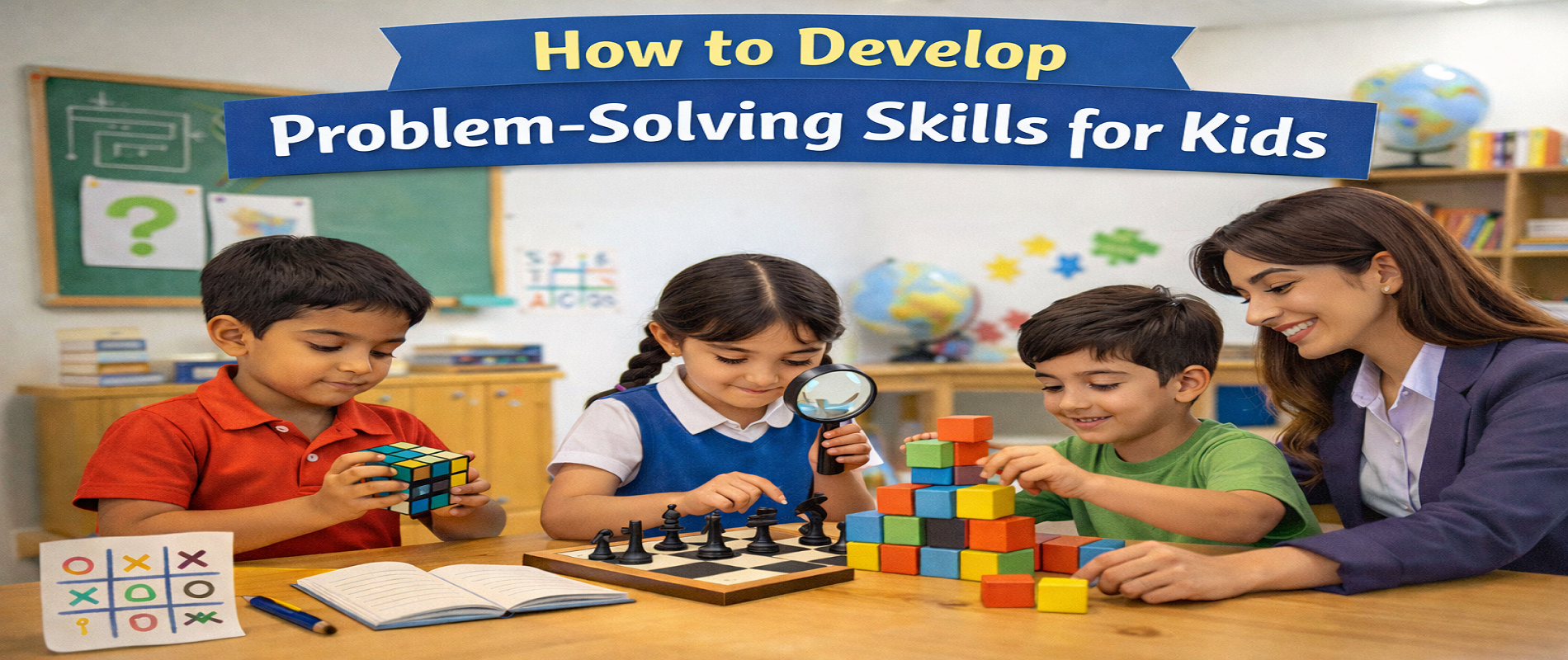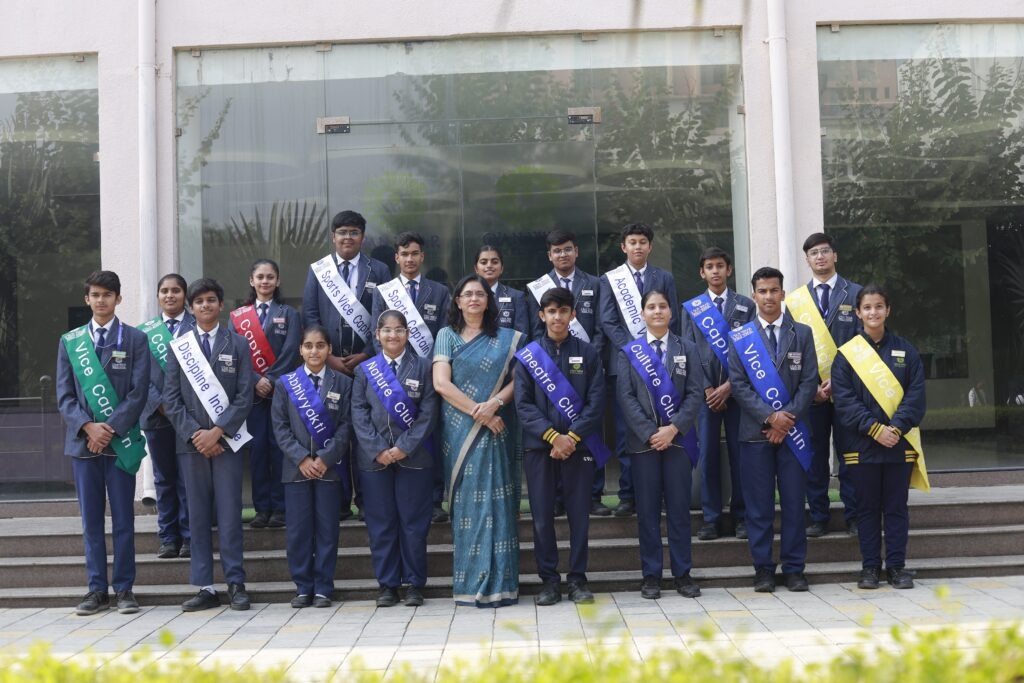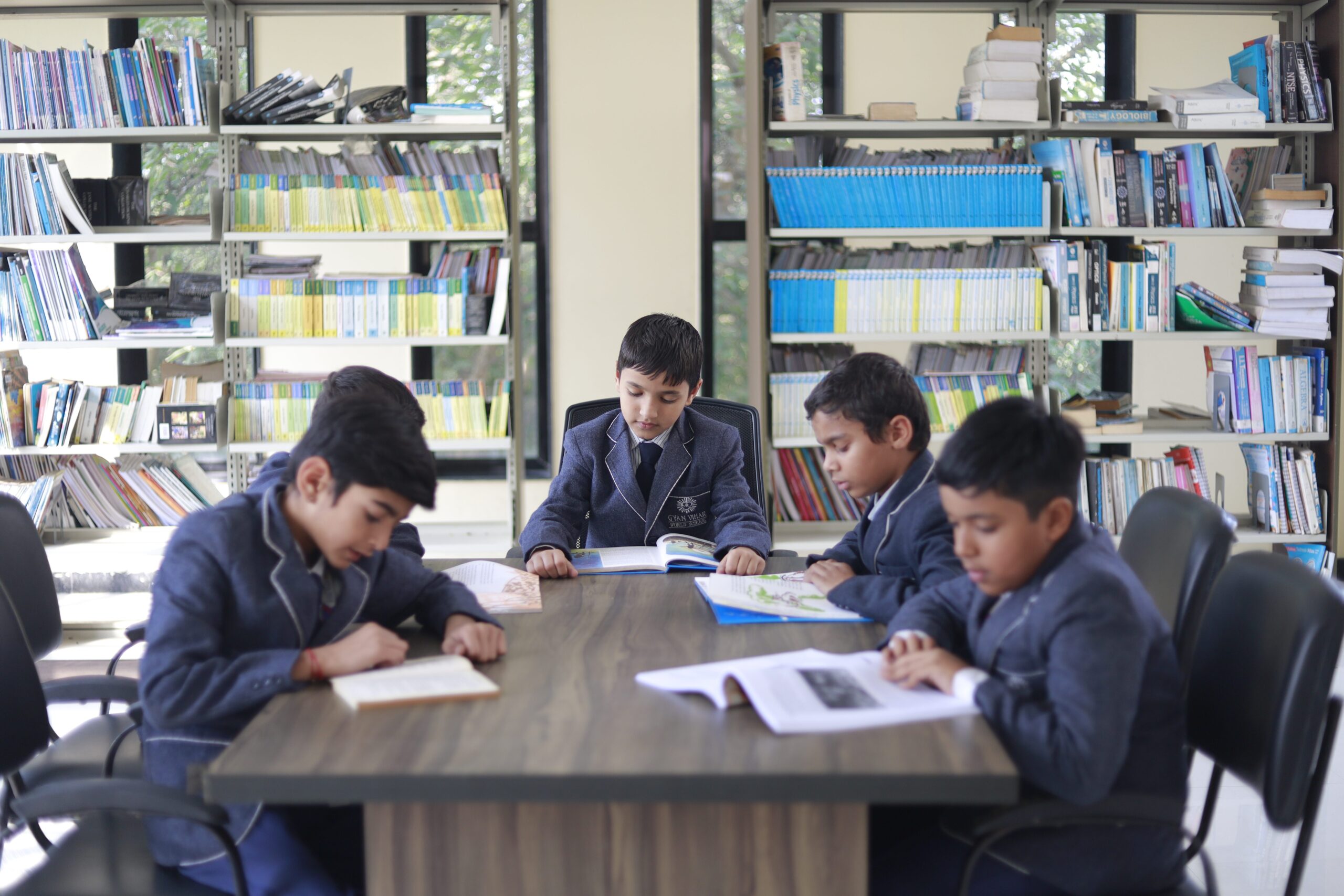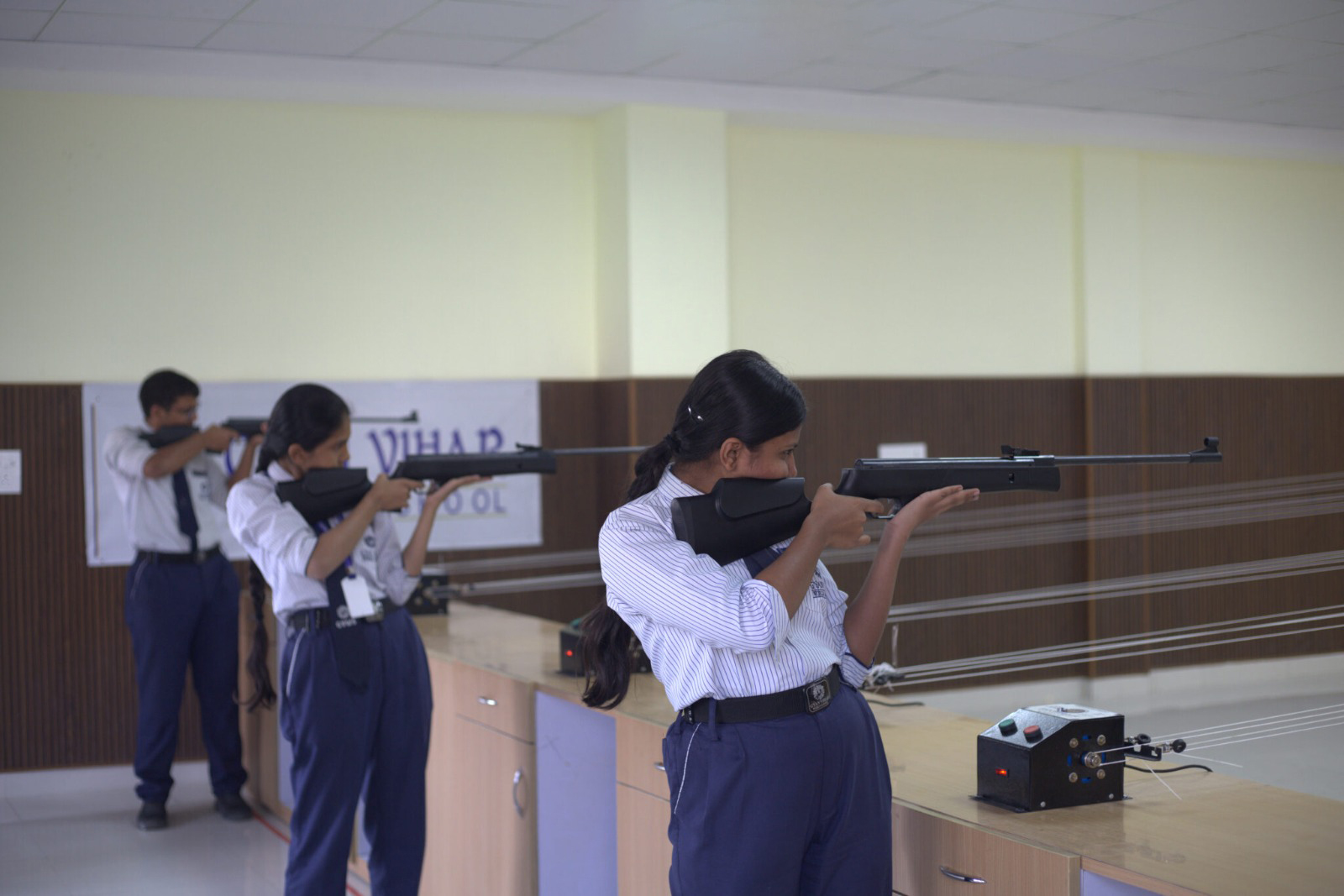Juggling schoolwork, extracurricular activities, social life, and family commitments can be overwhelming for students. The constant pressure to perform and excel can lead to stress, anxiety, and difficulty focusing. Here at Gyan Vihar World School, a Top School in Jaipur and one of the best CBSE Schools in Jaipur, we believe in fostering student well-being alongside academic excellence. One powerful tool we recommend for managing stress and improving focus is meditation.
This blog introduces you to the practice of meditation, exploring its benefits and different techniques specifically suited for students. Whether you’re feeling overwhelmed with academic pressure, struggling to concentrate during studies, or simply seeking a sense of inner calm, meditation can be a valuable addition to your daily routine.
What is Meditation?
Meditation is a practice that cultivates a state of focused attention and heightened awareness. It’s not about emptying your mind of thoughts (which is impossible!), but rather about learning to observe your thoughts and emotions without judgment. By training your mind to be present in the moment, you can develop greater focus, clarity, and inner peace.
Benefits of Meditation for Students
In today’s fast-paced world, meditation offers numerous benefits for students, including:
- Reduced Stress and Anxiety: Meditation provides a powerful tool for managing stress and anxiety, common challenges faced by students. The practice helps you become more aware of your stress triggers and teaches you techniques to calm your mind and body.
- Improved Focus and Concentration: Meditation can significantly enhance your ability to focus and concentrate. By learning to quiet the mental chatter and become present in the moment, you’ll find it easier to concentrate on your studies and avoid distractions.
- Enhanced Emotional Regulation: Meditation equips you with tools to manage your emotions effectively. By observing your emotions without judgment, you can learn to respond to them in a healthy way, rather than being controlled by them.
- Increased Self-Awareness: Meditation fosters a deeper understanding of yourself, your thoughts, and your emotions. This self-awareness empowers you to make positive choices and navigate challenges with greater clarity.
- Improved Sleep Quality: Stress and anxiety can significantly disrupt sleep patterns. Meditation promotes relaxation and reduces stress, leading to better sleep quality and improved overall well-being.
- Boosted Creativity and Problem-Solving Skills: Meditation can enhance creativity and problem-solving abilities. By quieting your mind and allowing yourself to enter a state of relaxed awareness, you can unlock new perspectives and find creative solutions to challenges.
Meditation Techniques for Students
There are many different meditation techniques, each with its own approach. Here are a few beginner-friendly techniques that are well-suited for students:
- Mindfulness Meditation: This simple technique involves focusing your attention on the present moment, typically by observing your breath. When your mind wanders (as it inevitably will!), gently bring your attention back to your breath without judgment.
- Body Scan Meditation: This technique involves focusing your attention on different parts of your body, one at a time. Notice any sensations like tension, relaxation, warmth, or coolness. This practice helps you become more aware of your physical body and release tension.
- Mantra Meditation: This technique involves silently repeating a mantra, which can be a word, phrase, or sound. Focusing on the mantra helps quiet the mind and promote a sense of calm. Common mantras include “Om” or phrases like “I am calm” or “I am focused.”
- Guided Meditation: Many guided meditations are available online or through apps. These meditations provide audio instructions that guide you through the practice, making it easier for beginners to get started.
Getting Started with Meditation:
Here are some tips to help you begin your meditation practice:
- Find a Quiet Place: Choose a quiet and comfortable space where you won’t be interrupted. This could be your bedroom, a study corner, or even a quiet spot outdoors.
- Set a Timer: Start with short meditation sessions, even just 5-10 minutes. As you become more comfortable, you can gradually increase the duration.
- Sit Comfortably: Sit in a comfortable upright position, either on a chair with your feet flat on the floor or on a cushion on the floor. Focus on maintaining good posture with a straight spine but without being tense.
- Close Your Eyes (Optional): You can close your eyes if it helps you focus inwards. However, some people find it easier to meditate with their eyes open.
- Focus on Your Breath: Begin by focusing your attention on your breath. Notice the sensation of your breath entering and leaving your nostrils or chest. If your mind wanders (which it inevitably will!), gently bring your attention back to your breath without judgment. It’s like training a muscle; the more you practice, the easier it becomes to maintain focus.
- Be Patient and Kind to Yourself: Learning to meditate takes time and practice. Don’t get discouraged if your mind wanders frequently at first. Simply acknowledge the wandering thought and gently bring your attention back to your breath. Meditation is not about achieving a state of perfect emptiness; it’s about cultivating awareness and acceptance.
- Make it a Habit: Like any skill, meditation requires regular practice to experience its benefits. Aim to meditate for a few minutes each day, even if it’s just 5-10 minutes. Consistency is key! You can integrate meditation into your daily routine by meditating first thing in the morning, before bed, or during a short break between study sessions.
Additional Tips for Students:
- Find a Meditation Buddy: Meditating with a friend or classmate can be a motivating factor and provide a sense of accountability. You can share your experiences and support each other in your meditation journeys.
- Use Meditation Apps: Many meditation apps offer guided meditations, soothing soundscapes, and progress tracking tools, which can be helpful for beginners. Explore different apps to find one that suits your preferences.
- Combine Meditation with Other Relaxation Techniques: Meditation can be practiced alongside other relaxation techniques like deep breathing exercises, progressive muscle relaxation, or gentle yoga stretches. Combining these practices can further enhance your sense of calm and well-being.
- Talk to Your Teacher or Counselor: If you have any questions or concerns about meditation, feel free to talk to your teacher or school counselor. They can provide additional resources and support to help you get started.
Meditation at Gyan Vihar World School
At Gyan Vihar World School, One of the Best CBSE schools in Jaipur, we recognize the importance of student well-being and mental health. We integrate mindfulness practices, including meditation, into our curriculum to equip students with tools for managing stress, improving focus, and fostering emotional well-being.
Meditation is a powerful tool that can benefit students in numerous ways. By incorporating meditation into your daily routine, you can cultivate greater focus, manage stress more effectively, and develop a sense of inner peace that will serve you well throughout your life. So, take a deep breath, find a quiet corner, and embark on your meditation journey. At Gyan Vihar World School, we believe in fostering the whole student, nurturing not just academic excellence but also emotional well-being. We invite you to explore the world of meditation and discover its transformative potential!







